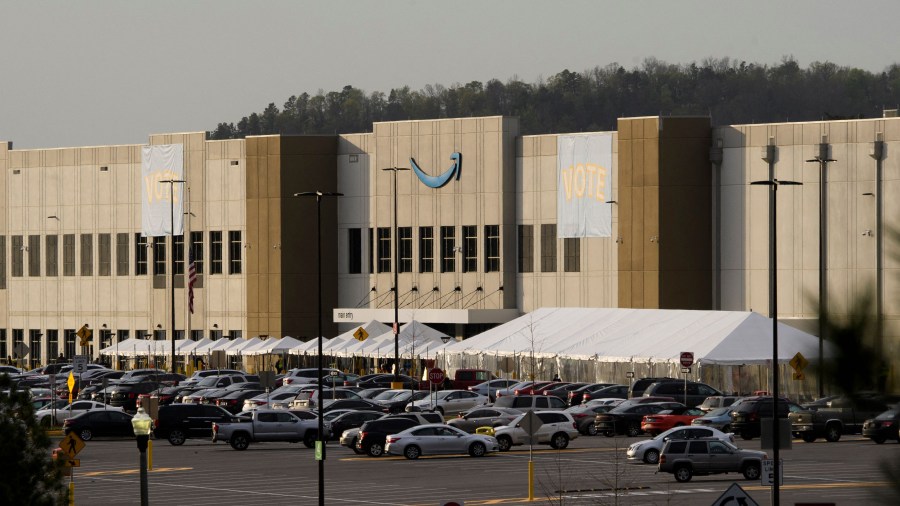Amazon beat back a union. But questions about the role of technology at work remain.

As you’ve probably heard by now, the effort to unionize an Amazon warehouse in Bessemer, Alabama, was unsuccessful, though the union said it will challenge the vote. It would have affected just a fraction of Amazon’s workforce, but it captured the attention of the country at a time when e-commerce has become a lifeline and the welfare of essential workers has come under threat.
I spoke with Janice Fine, a professor of labor studies and employment relations at Rutgers University. She said the union push at Amazon and its defeat highlight the growing role of technology in the workplace, especially Amazon’s. The following is an edited transcript of our conversation.
Janice Fine: [Amazon uses] surveillance technology, including scanners that workers use to track the rate at which they sort and pack items, mandatory daily worker surveys, AI-powered camera systems to detect social-distancing violations. They use navigation software, item scanners, wristbands, thermal cameras, security cameras, recorded footage to surveil the workforce. So you have this combination of surveillance for productivity targets, and that same surveillance lends itself to being able to monitor workers’ social activities.
Meghan McCarty Carino: Without a union in place, then, can workers push back against this kind of stuff? What kind of tools do they have?
Fine: Workers are pushing back all over the country. And that’s the thing that I think is really important to bear in mind, that workers in New Jersey, workers in the Inland Empire in California, workers in Chicago. But these are organizations that have, for years, been working with Amazon workers in warehouses and fulfillment centers, and just by kind of getting the story out there, they’ve drawn the country’s attention to the problems with Amazon’s business model by organizing and getting this far, getting to an election. And so they see this as a kind of a long haul fight.
McCarty Carino: How does what’s happening with Amazon kind of fit into this broader discussion about the future of work?
Fine: So I think that there’s been this attitude about the future of work, that technology is coming, that we, in a democracy, have no say over how that technology gets implemented, either in our politics or in our workplaces. And in some ways, it just reminds me of, there’s this meteor, and this meteor is coming at us and there’s nothing we can do to stop it. And I feel like we have to talk about the future of workers, not just the future of work. And we have to recognize that we can exercise some control, as we have done in the past. And just because we can do something, doesn’t mean we should do something, and it means that we need to have a national reckoning and some sense of the ethics of all of this and how we want workers to be treated at work.

Related links: More insight from Meghan McCarty Carino
Amazon says it didn’t intimidate warehouse employees, and its cameras don’t listen in on workers or store personal information.
Janice Fine mentioned that Amazon workers around the country have been pushing back against the company; and, in fact, 37 labor charges have been filed against the company since the pandemic began. That’s three to six times the number in previous years, according to NBC News.
And it’s not just warehouse workers who have filed complaints. Last week, the National Labor Relations Board found Amazon had illegally fired two tech workers who had publicly pushed the company to do more to address climate change and improve safety in warehouses. The complaints have been so widespread that the labor board is considering consolidating them into a single national investigation to determine if they constitute a pattern of violations.
The future of this podcast starts with you.
Every day, the “Marketplace Tech” team demystifies the digital economy with stories that explore more than just Big Tech. We’re committed to covering topics that matter to you and the world around us, diving deep into how technology intersects with climate change, inequity, and disinformation.
As part of a nonprofit newsroom, we’re counting on listeners like you to keep this public service paywall-free and available to all.
Support “Marketplace Tech” in any amount today and become a partner in our mission.


















